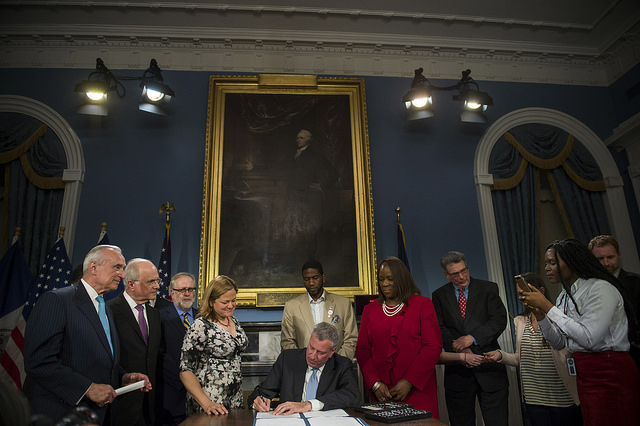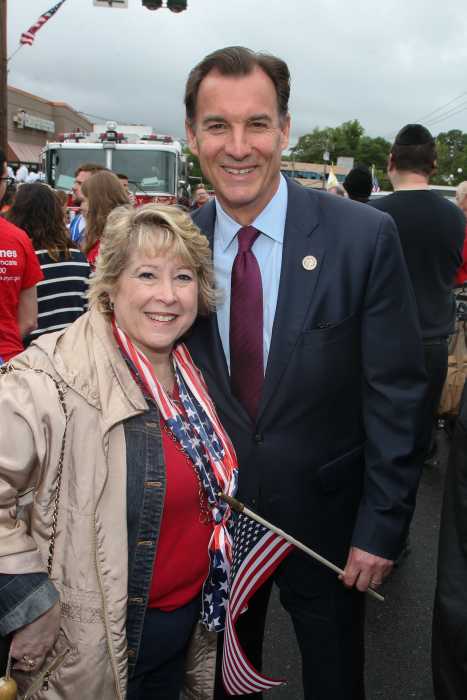
Mayor Bill de Blasio this week signed the Criminal Justice Reform Act, which will lessen penalties for low-level offenses and give officers and courts better tools to deal with offenders to help avoid extended incarceration and heavy fines.
The Criminal Justice Reform Act is made up of eight bills.
The first bill, Intro. 639-B, requires the NYPD to make publicly available a report on the issuance of both criminal and civil summonses by offense; race, age, and gender of the person to whom the criminal or civil summons was issued; and the borough, precinct and housing area or transit district in which it was issued.
The second bill, Intro. 662-A requires the NYPD to make publicly available a report on the issuance of Desk Appearance Tickets (DAT) by offense; race, age, and gender of the person to whom the DAT was issued; and the borough, precinct and housing area or transit district in which it was issued.
The third bill, Intro. 1057-A, requires the NYPD to issue guidance to officers on when to use the criminal and when to use the civil summons enforcement option with respect to low-level offenses.
The fourth bill, Intro. 1059-A, authorizes the Office of Administrative Trials and Hearings (OATH) to offer the option of serving community service in lieu of paying a civil penalty for certain low-level offenses, with the exception of certain offenses that are committed with an underlying commercial purpose.
The fifth bill, Intro. 1067-A, adds the option of a civil penalty of up to $25 and reduce possible imprisonment from five days to one day for anyone in violation of the City’s prohibition of possession of an open container of alcohol in public.
The sixth bill, Intro. 1070-A, establishes a civil penalty of $75 for first-time offenders for the offenses of littering and public urination.
The seventh bill, Intro. 1058-A, reduces the civil penalty amounts for unreasonable noise violations other than those committed in a commercial context or in certain cases by building owners.
The eighth bill, Intro. 1056-A, changes the penalties when certain rules of the Department of Parks and Recreations are violated. Most rules will now be punishable as a violation and does not appear on a person’s criminal record.
In signing the measure, de Blasio noted that for too long, one small wrongdoing came with a huge cost, taking a large toll on New Yorkers’ lives and opportunities.
“A minor nonviolent act of poor judgment should not determine one’s destiny. Today, we are making sure that key low-level offenses are enforced appropriately – without sacrificing our city’s quality of life or our residents’ safety,” de Blasio said.
Police Commissioner William J. Bratton said the new legislation will allow the NYPD to use the full range of enforcement tools we currently have to address these low-level offenses, while still providing us with the additional option to issue a civil summons instead of a criminal summons or arrest in appropriate circumstances.
“This legislation advances the many steps the NYPD has taken to implement precision policing in all communities throughout the City,” said Bratton.

Council Member Jumaane D. Williams (Flatbush, East Flatbush, Midwood) said many of us have rightly identified the disparity in policing practices in particular communities.
“This bill will allow us to have a tangible record on how some communities are policed. It’s important to note that the bill does not change enforcement or encourage crime; this bill is about equity and improving how communities are engaged by the NYPD.” said Williams.










